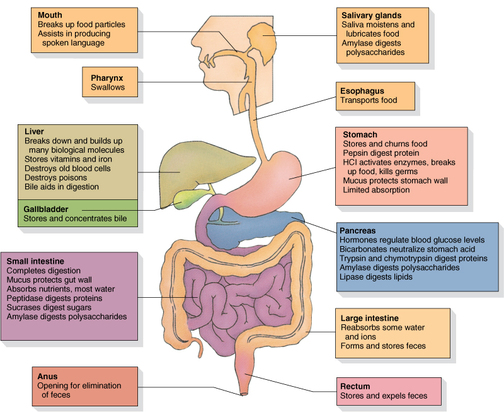How does the human digestive system change food into nutrients?
1 Answer
Complex food is converted to absorbable molecules in human digestive system
Explanation:
Food consists of complex carbohydrates, fat and proteins.
Digestive system is designed to convert complex food to absorbable, smaller molecules.

Food is first broken down mechanically when we chew it in our mouths. Some chemical digestion also occurs in our mouth as saliva breaks down food. Once food has reached the stomach, it is churned and broken down further with the aid of enzymes.
In the small intestine, some chemical digestion occurs, as enzymes break down food, but this is the main site where what remains of our food is absorbed into our body. In the small intestine, nutrients and minerals are absorbed through the villi. Nutrients absorbed through the cell wall of the villi enter the bloodstream and are then transported throughout the body. In the large intestine, more water is absorbed.
This short video covers the basics of the digestion system:
Only glucose can enter the cell membrane. Other monosaccharied absorbed are fructose and galactose.
Only individual amino acids are absorbed in digestive system. Complex proteins are degraded to amino acids.
Lipids are digested to free fatty acids are absorbed.
In short, digestive system degrades food in nutrients.
The reason is through cell membrane molecules of a certain size can be penetrated.

